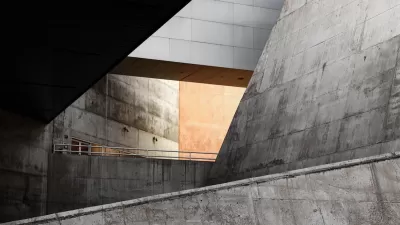Philadelphia has appointed a Zoning Reform Commission to rewrite its 1962 Code. Two leaders who advocated for the rewrite share what they learned from other cities.
After a three year push by building industry and neighborhood organizations, Philadelphia has appointed a 31 member Zoning Reform Commission and begun to rewrite its outdated Code. To do so, the authors state that Philadelphia would be wise to learn from the experience of other cities and:
- Hold listening sessions to understand the failings of the Code for different constituencies
- Analyze the Code to determine where change is needed to modernize, simplify or add consistency to Code
- Share key findings early to assure consensus
- Simplify the 624 page Code so that a lawyer isn't needed to understand it
- Educate and update the public regularly
- Reduce the number of zoning designations from 55 to a sensible and workable number
- Add contextual zoning to choose "street sense" over code adherence
- In the absence of a Comprehensive Plan, find big ideas that define the goals of zoning
- Adopt changes throughout the process rather than waiting until the end
- Do not tackle the most controversial issues in your first rewrite phase and risk the entire process
FULL STORY: 10 tipes to city for building a better code

What ‘The Brutalist’ Teaches Us About Modern Cities
How architecture and urban landscapes reflect the trauma and dysfunction of the post-war experience.

‘Complete Streets’ Webpage Deleted in Federal Purge
Basic resources and information on building bike lanes and sidewalks, formerly housed on the government’s Complete Streets website, are now gone.

The VW Bus is Back — Now as an Electric Minivan
Volkswagen’s ID. Buzz reimagines its iconic Bus as a fully electric minivan, blending retro design with modern technology, a 231-mile range, and practical versatility to offer a stylish yet functional EV for the future.

City Nature Challenge: Explore, Document, and Protect Urban Biodiversity
The City Nature Challenge is a global community science event where participants use the iNaturalist app to document urban biodiversity, contributing valuable data to support conservation and scientific research.

A Lone Voice for Climate: How The Wild Robot Stands Apart in Hollywood
Among this year’s Oscar-nominated films, only The Wild Robot passed the Climate Reality Check, a test measuring climate change representation in storytelling, highlighting the ongoing lack of climate awareness in mainstream Hollywood films.

Healing Through Parks: Altadena’s Path to Recovery After the Eaton Fire
In the wake of the Eaton Fire, Altadena is uniting to restore Loma Alta Park, creating a renewed space for recreation, community gathering, and resilience.
Urban Design for Planners 1: Software Tools
This six-course series explores essential urban design concepts using open source software and equips planners with the tools they need to participate fully in the urban design process.
Planning for Universal Design
Learn the tools for implementing Universal Design in planning regulations.
City of Albany
UCLA Lewis Center for Regional Policy Studies
Mpact (formerly Rail~Volution)
Chaddick Institute at DePaul University
City of Piedmont, CA
Great Falls Development Authority, Inc.
HUDs Office of Policy Development and Research


























